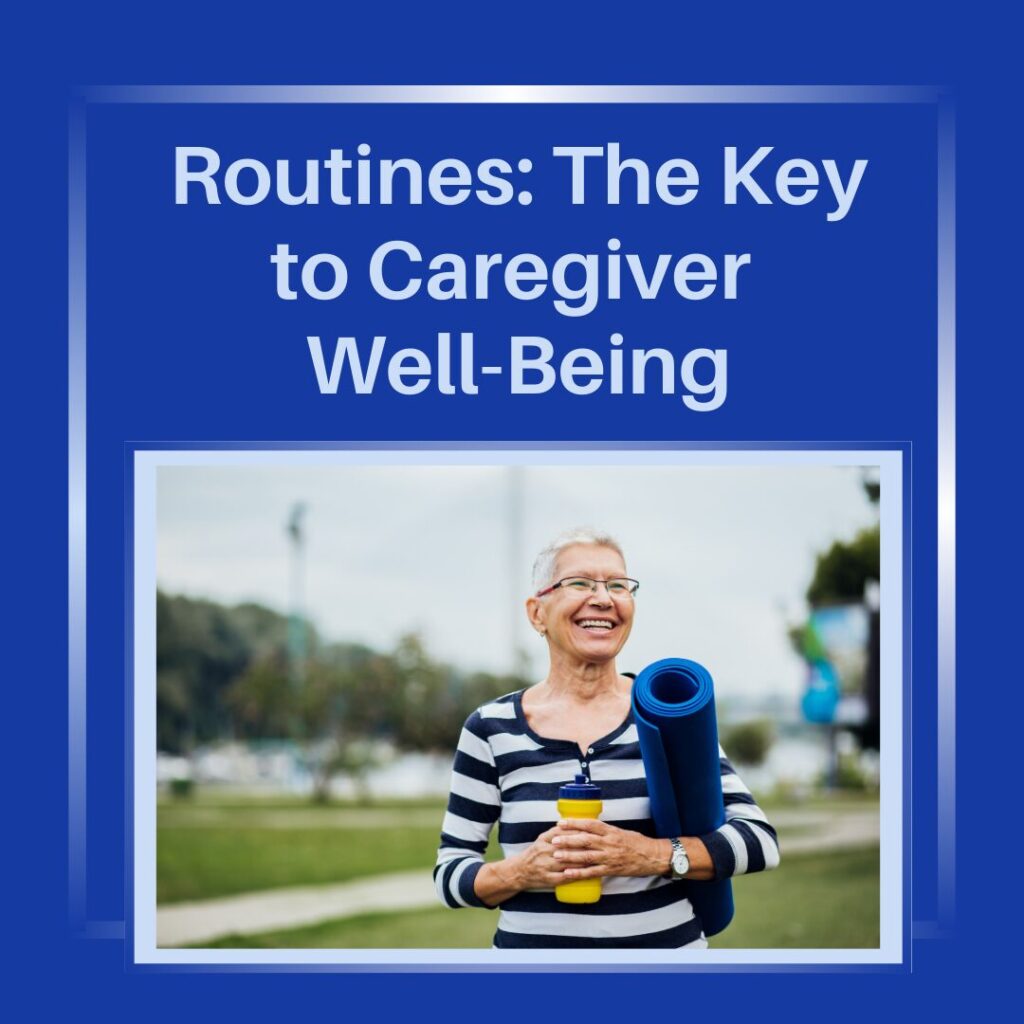Embrace Routines for Caregiver Recharge
As we enter the New Year, many of us set resolutions to improve our lives and foster personal growth. For caregivers, the demands of daily responsibilities often overshadow personal goals, leaving little room for self-care. Yet implementing routines—structured, intentional habits—can be a game-changer. Routines benefit care recipients by providing predictability and stability and serve as a foundation for caregivers to prioritize well-being.
Let’s explore the importance of routines, the challenges caregivers face in establishing them, and how to craft flexible routines that protect self-care practices.
The Importance of Routines in Caregiving
Routines create structure in the unpredictable world of caregiving. They provide a sense of control, reduce decision fatigue, and allow us to allocate time for essential tasks and self-care. Research suggests that routines can lower stress levels, improve sleep quality, and foster emotional resilience—all critical benefits for caregivers who often face high levels of physical and emotional strain.
Moreover, routines benefit care recipients by creating a consistent daily rhythm. This predictability is especially helpful for individuals with dementia or other cognitive challenges, who often find comfort in familiar patterns.
However, the true power of routines lies in their ability to support caregivers’ self-care. By embedding moments of rest, reflection, and rejuvenation into a structured day, we can reduce burnout and preserve our capacity to provide quality care.
Why Are Routines Difficult for Caregivers?
Caregiving is inherently unpredictable. A care recipient’s needs can shift without warning, medical appointments can arise unexpectedly, and emergencies may disrupt even the most carefully planned schedules. Additionally, the emotional weight of caregiving can make it challenging to prioritize oneself amidst the demands of caring for another.
We may also struggle with guilt, believing that any time spent on ourselves detracts from our care recipient. This mindset often leads to neglecting personal needs, further contributing to burnout. Acknowledging these challenges is the first step toward establishing routines that work.
Incorporating Routines into a Caregiving Day
Creating routines doesn’t mean scheduling every minute of the day. Instead, it’s about identifying key moments where structure can help and then building habits that support both caregiving and self-care. Here’s how to begin:
Examples of Caregiver-Centered Routines
Here are some practical examples of routines that can support us:
The Importance of Flexibility
Rigid routines can feel like yet another source of pressure for caregivers. Flexibility is key to making routines sustainable and adaptable to life’s inevitable changes. Here’s how to approach flexibility in routines:
Routines as a Resolution for Self-Care
This New Year, consider making routines your resolution—not as rigid schedules, but as a commitment to creating habits that nurture your well-being. Start small, be kind to yourself, and remember that every step toward incorporating self-care into your day is a step toward a healthier, more resilient you.
As caregivers, it’s easy to focus all your energy on the needs of others, but prioritizing your own care isn’t selfish—it’s essential. By building routines that center self-care, you not only replenish your own reserves but also ensure you can provide the best care possible for your loved one.
This January, resolve to make yourself a priority. Through the power of routines, you can step into the New Year with renewed energy, balance, and purpose.
For solutions for caregivers’ common mistakes, check out 21 Mistakes Caregivers Make & How to Avoid Them: Solutions and Strategies to Reduce Stress and Increase Happiness, available on Amazon! Are you looking for a dynamic speaker on caregiver empowerment? Go to my speaking page, and let’s connect!
The advice offered is for general information only; please consult your healthcare team, legal, or financial advisors for guidance.


